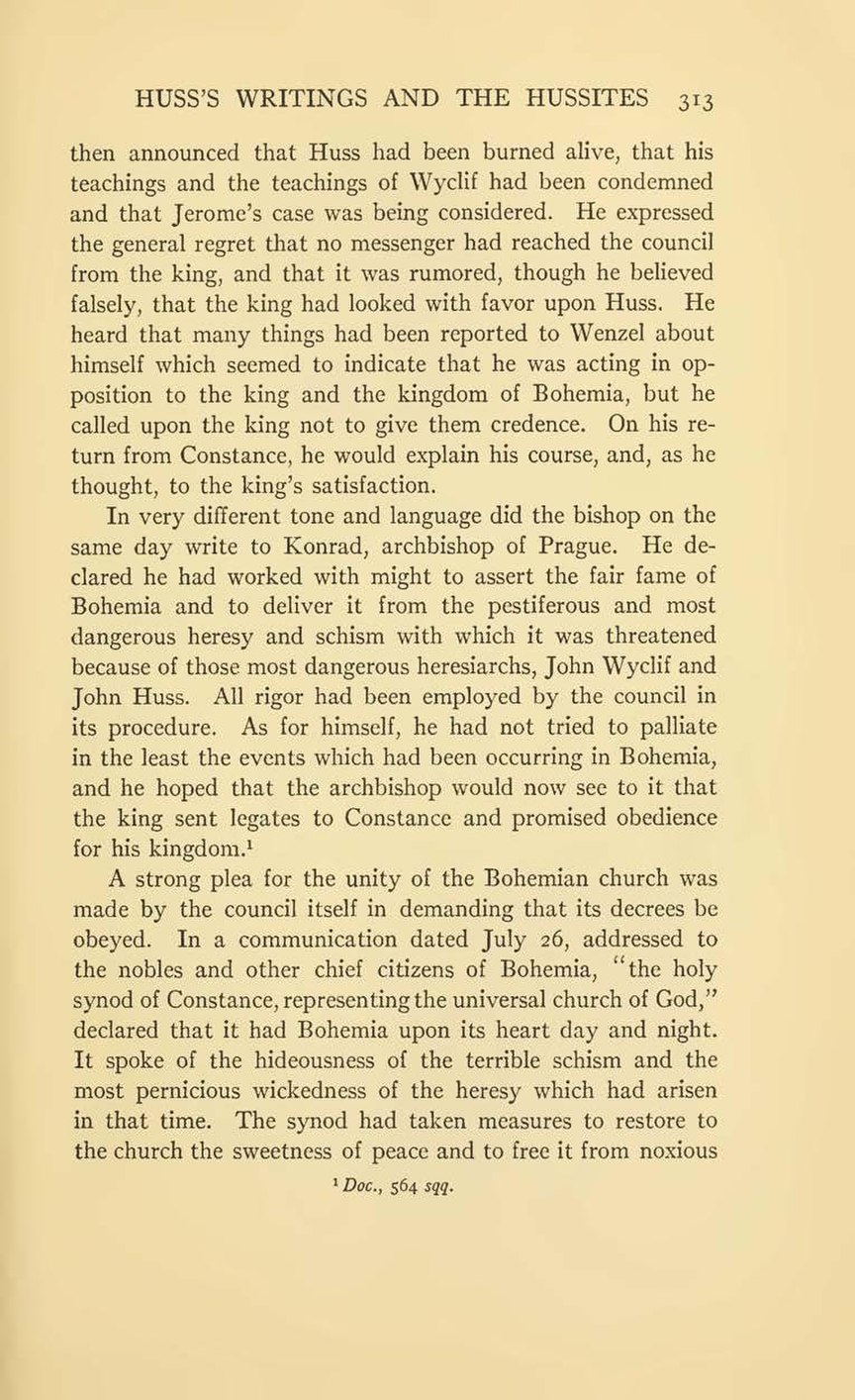then announced that Huss had been burned alive, that his teachings and the teachings of Wyclif had been condemned and that Jerome’s case was being considered. He expressed the general regret that no messenger had reached the council from the king, and that it was rumored, though he believed falsely, that the king had looked with favor upon Huss. He heard that many things had been reported to Wenzel about himself which seemed to indicate that he was acting in opposition to the king and the kingdom of Bohemia, but he called upon the king not to give them credence. On his return from Constance, he would explain his course, and, as he thought, to the king’s satisfaction.
In very different tone and language did the bishop on the same day write to Konrad, archbishop of Prague. He declared he had worked with might to assert the fair fame of Bohemia and to deliver it from the pestiferous and most dangerous heresy and schism with which it was threatened because of those most dangerous heresiarchs, John Wyclif and John Huss. All rigor had been employed by the council in its procedure. As for himself, he had not tried to palliate in the least the events which had been occurring in Bohemia, and he hoped that the archbishop would now see to it that the king sent legates to Constance and promised obedience for his kingdom.[1]
A strong plea for the unity of the Bohemian church was made by the council itself in demanding that its decrees be obeyed. In a communication dated July 26, addressed to the nobles and other chief citizens of Bohemia, “the holy synod of Constance, representing the universal church of God,” declared that it had Bohemia upon its heart day and night. It spoke of the hideousness of the terrible schism and the most pernicious wickedness of the heresy which had arisen in that time. The synod had taken measures to restore to the church the sweetness of peace and to free it from noxious
- ↑ Doc., 564 sqq.
